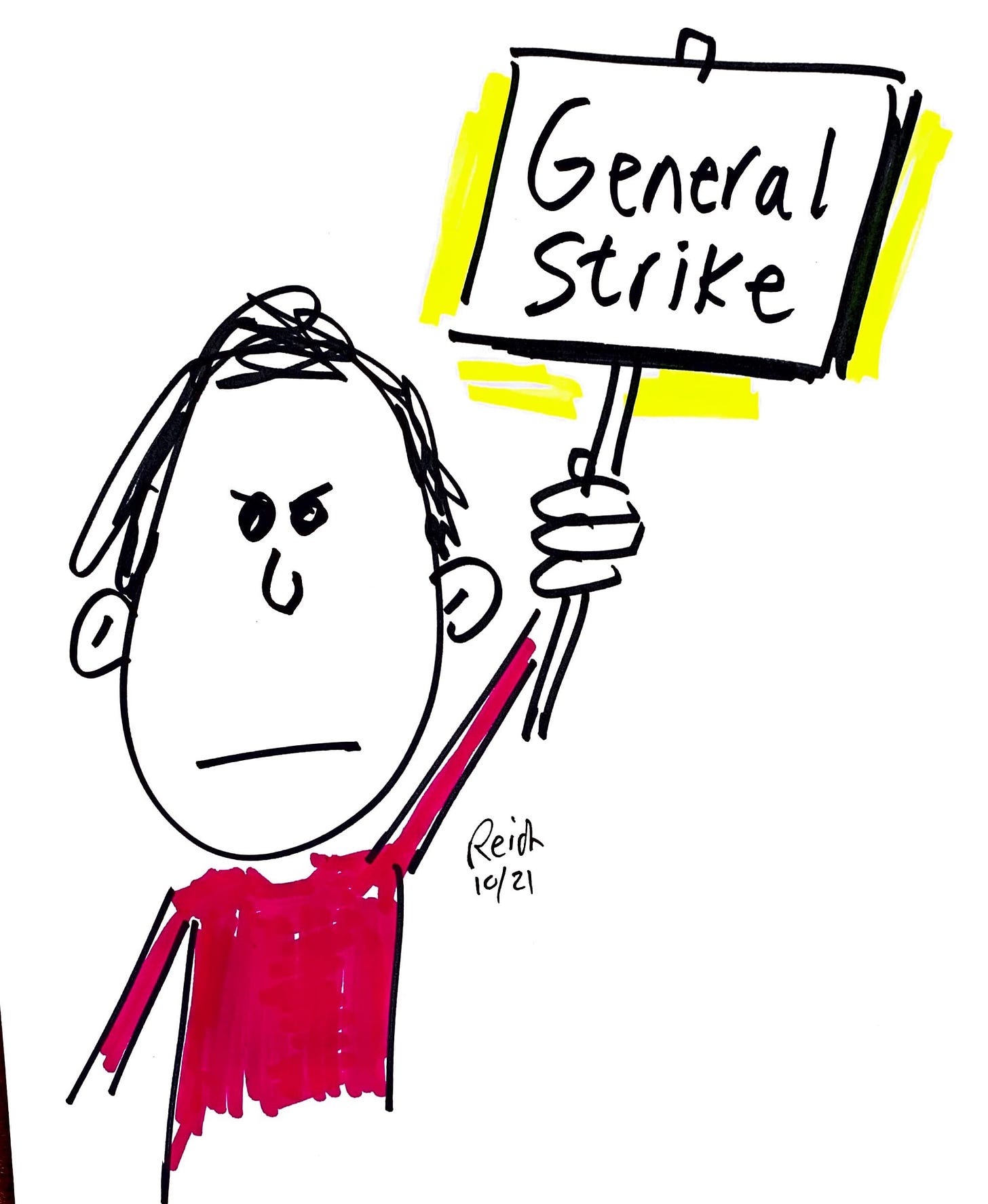By Robert Reich
The U.S. added just 194,000 jobs in September, down from the 366,000 added in August and far below the million-plus in July (before the Delta variant took hold).
This is being described in the media as a disappointment or a problem,
but a closer look reveals something quite different.
We’re
still 5 million jobs below February 2020 levels, and 2.7 million people have
been out of work for six months or more, the standard threshold for long-term
unemployment. Many of these people are hurting, to be sure.
But the number of job openings is at a record high, and many employers report having a hard time filling positions. Why?
Some workers have retired early or found other ways to make ends meet.
Others simply don’t want to return to
backbreaking, low-wage shit jobs.
Note
that the share of people who were working or looking for work last month (the
labor force participation rate) dipped to 61.6 percent, down slightly from the
prior month. Participation for people in their prime working years, defined as
25 to 54 years old, also ticked down.
In
other words, many American workers are now engaged in the equivalent of a
general strike.
As a result, employers are raising wages and offering other inducements to lure applicants. Average earnings rose 19 cents an hour in September and are up more than $1 an hour over the last year, after a series of strong monthly gains. Average hourly earnings have jumped by 4.6 percent over the last year.
Corporate
America wants to frame all this as a “labor shortage.” But that’s not what’s
really going on. In reality, there’s a living wage shortage, a hazard pay
shortage, a childcare shortage, a paid sick leave shortage, and a health care
shortage – and American workers are demanding an end to all these shortages. Or
they won’t return to work.
They
deserve it.
Robert Reich's writes at robertreich.substack.com. His latest
book is "THE SYSTEM: Who Rigged It, How To Fix It." He is
Chancellor's Professor of Public Policy at the University of California at
Berkeley and Senior Fellow at the Blum Center. He served as Secretary of Labor
in the Clinton administration, for which Time Magazine named him one of the 10
most effective cabinet secretaries of the twentieth century. He has written 17
other books, including the best sellers "Aftershock," "The Work
of Nations," "Beyond Outrage," and "The Common Good."
He is a founding editor of the American Prospect magazine, founder of
Inequality Media, a member of the American Academy of Arts and Sciences, and
co-creator of the award-winning documentaries "Inequality For All,"
streaming on YouTube, and "Saving Capitalism," now streaming on
Netflix.
